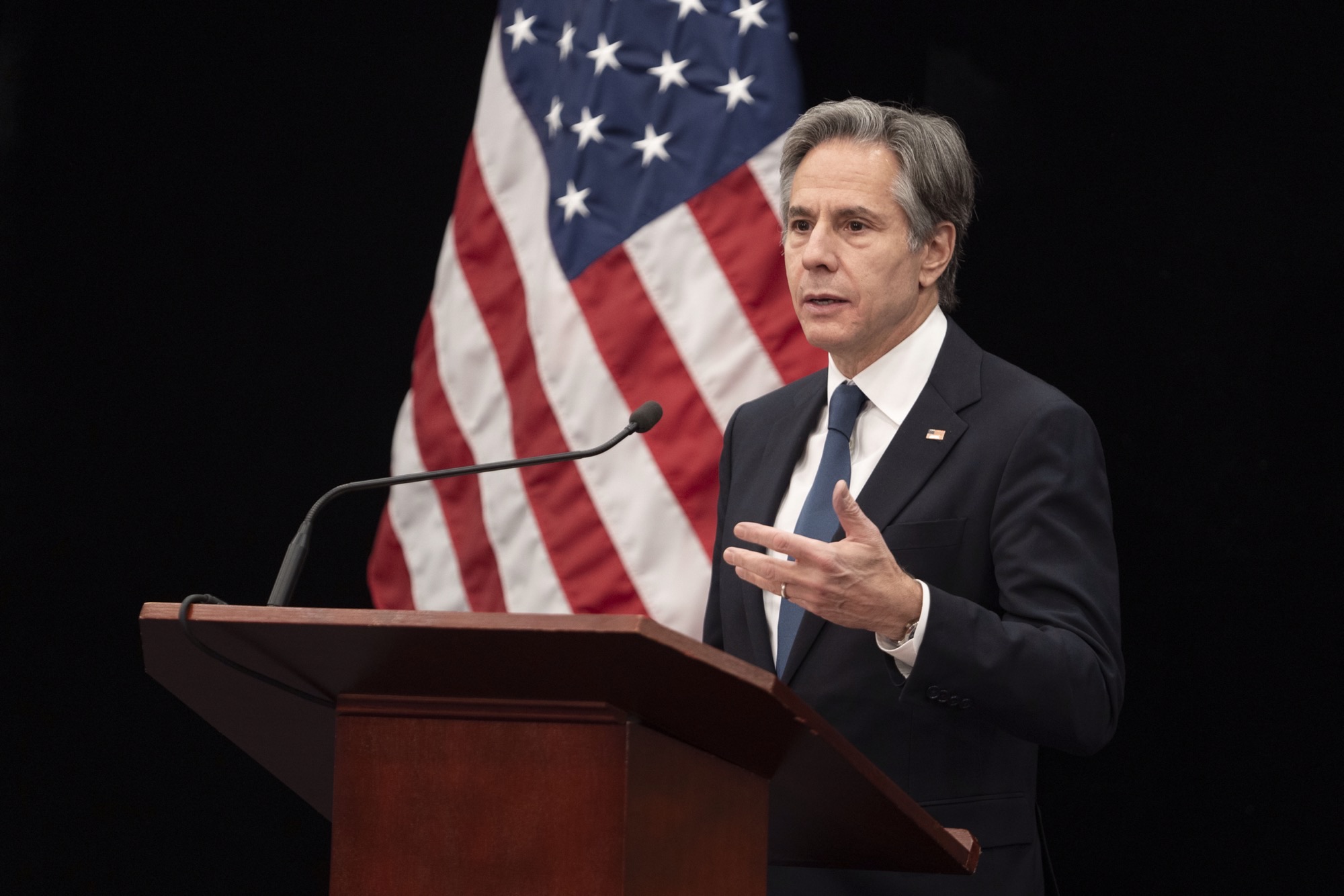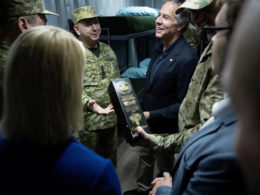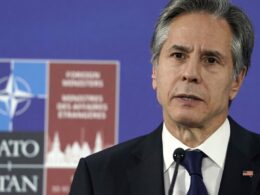In a joint press conference on 18 June, NATO Secretary General Jens Stoltenberg and US Secretary of State Antony Blinken addressed the close alignment between Russia and authoritarian states like North Korea, China, and Iran.
This comes as Russian President Vladimir Putin visits North Korea to strengthen relations between the two countries, with North Korea providing weapons and ammunition to Russia, helping its s full-scale war against Ukraine.
“This [Putin’s visit to North Korea] also demonstrates that our security is not regional, it’s global. What happens in Europe matters for Asia, what happens in Asia matters for us. This is clearly demonstrated in Ukraine where Iran, North Korea, and China are fueling Russia’s war of aggression against Ukraine,” Stoltenberg said.
Stoltenberg expressed concern about Russia’s potential support for North Korea’s missile and nuclear programs. He highlighted China’s role in propping NATO to strengthen ties in the Asia-Pacific amid Putin’s visit to North Korea up Russia’s war economy. In response, NATO intends to strengthen partnerships with Asia-Pacific partners at the upcoming NATO summit in Washington to address the linked challenges faced in Europe, Asia, and the Asia-Pacific.
“I fully agree that China cannot have it both ways. They cannot continue to have normal trade relationships with countries in Europe and at the same time fuel the biggest war we have seen in Europe since the Second world war. This has to have consequences for China,” he said.
Secretary Blinken commented on President Putin’s travels to North Korea, emphasizing Russia’s desperate attempts to strengthen relations with countries that can supply it with resources necessary for its ongoing war against Ukraine.
He noted that North Korea is providing significant munitions and other weapons to Russia, while Iran is supplying drones and other armaments used against civilians and infrastructure in Ukraine.
Additionally, Blinken expressed deep concerns about China, not for supplying weapons directly, but for supporting Russia’s defense industry, enabling the production of more tanks, munitions, and missiles.
“The fastest way to end the war [in Ukraine] is for Putin to be disabused of the notion that he can outlast Ukraine and all of Ukraine’s supporters but also if he knows that the fuel he needs for his war machine won’t be there anymore,” Blinken said, referring to China, North Korea and Iran, supporting Russia’s military efforts.
Regarding Ukraine, Stoltenberg mentioned that NATO is discussing many military deliverables for Ukraine before the upcoming summit. They have already agreed on a plan for NATO training and security assistance for Ukraine, and new announcements of more military support are upcoming.
“I’m certain that we will also have language expressing that Ukraine will become a member of the [NATO] alliance… I strongly believe that the stronger our support is [to Ukraine], the sooner this war can end,” Stoltenberg said.
On 17 June, US National Security Communications Advisor John Kirbyy stated that Putin’s visit to North Korea is “an attempt to flirt with autocracies.” He noted that the relations between these countries threaten not only Ukrainian civilians suffering from North Korean ballistic missiles launched by Russia but it also affects the security of the Korean Peninsula as a whole.
Related:
- Russia, North Korea deepen cooperation during Putin’s first visit to Korea in 24 years
- Reuters: US announces new sanctions over North Korea-Russia arms transfers
- Why Ukraine’s fight is key to defeating Russia-China-North Korea alliance
- US diplomat says North Korea ships thousands of ammunition containers to Russia





